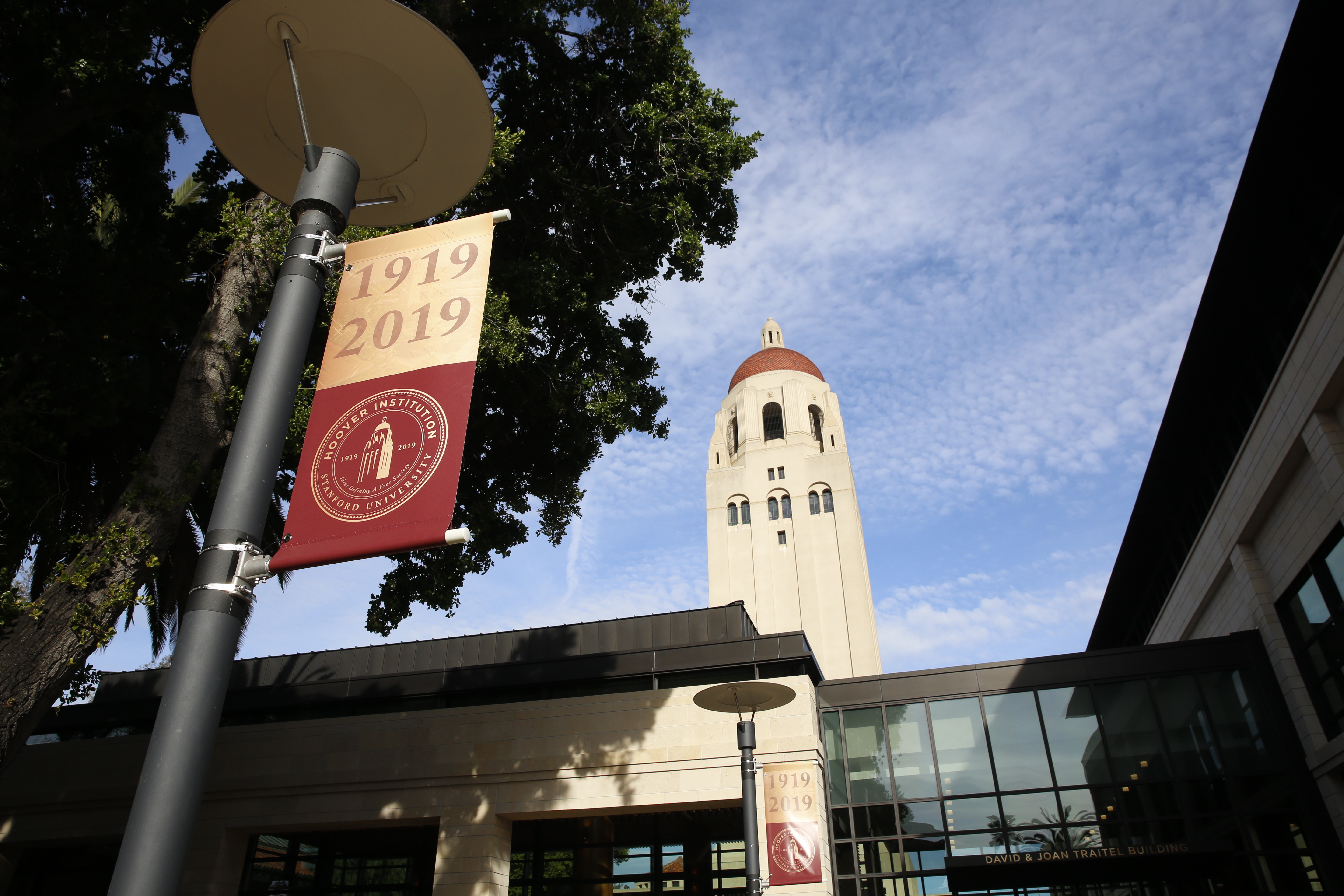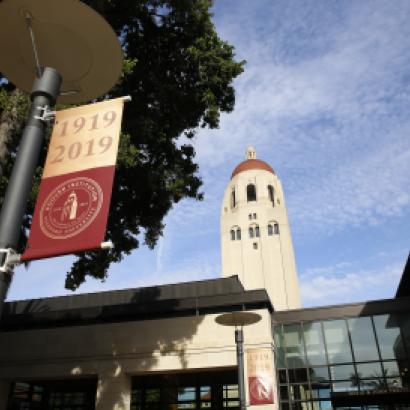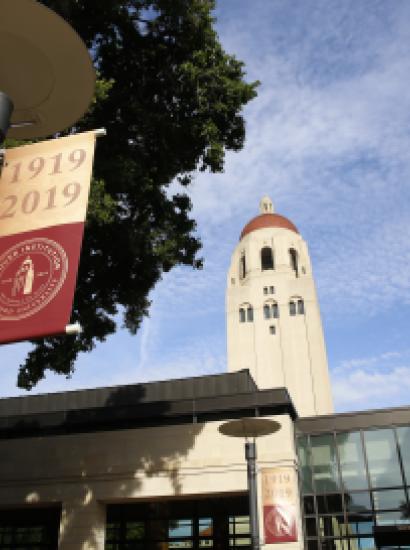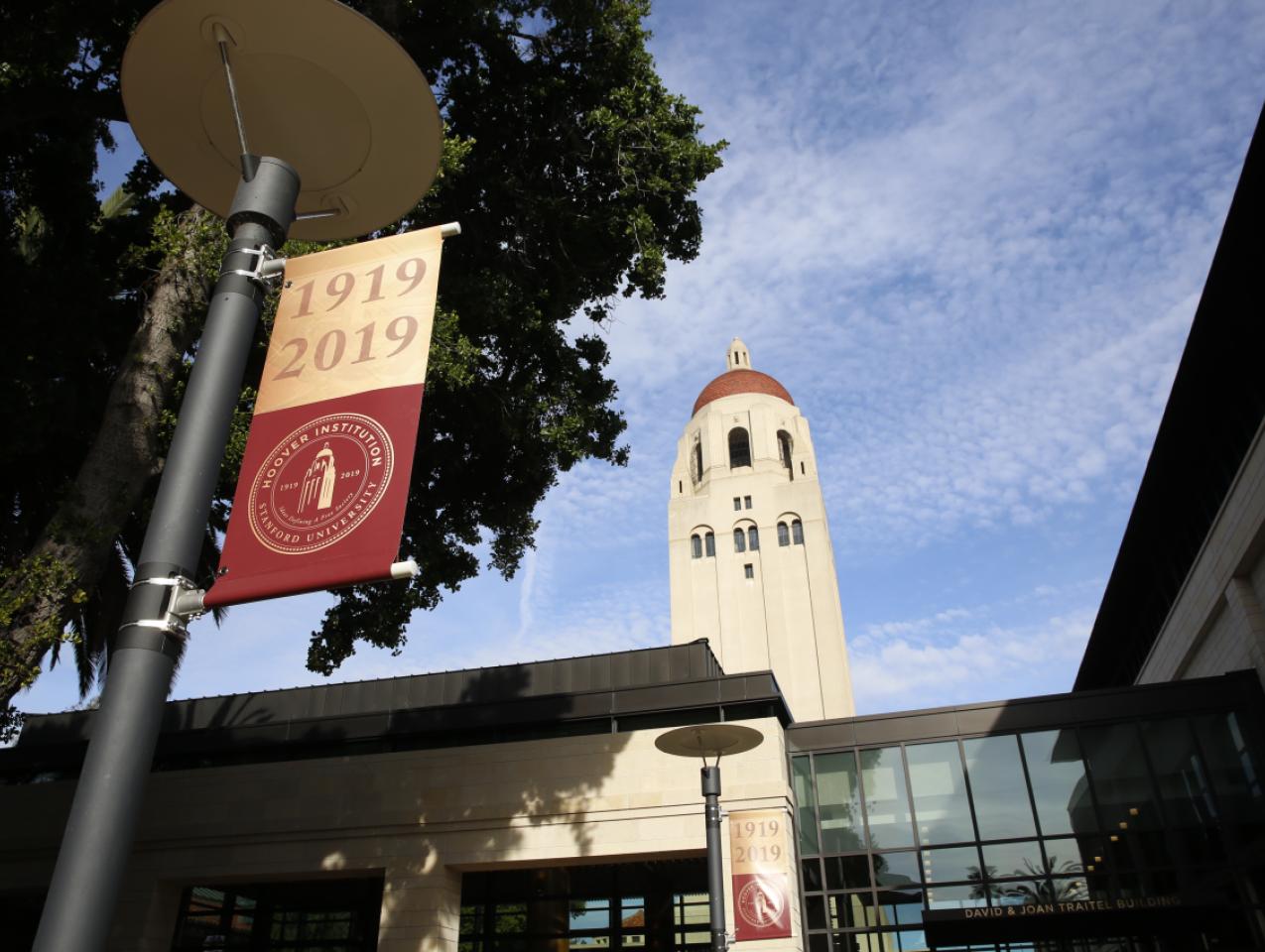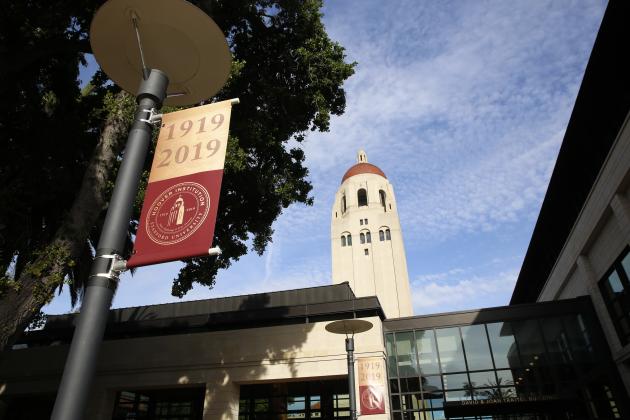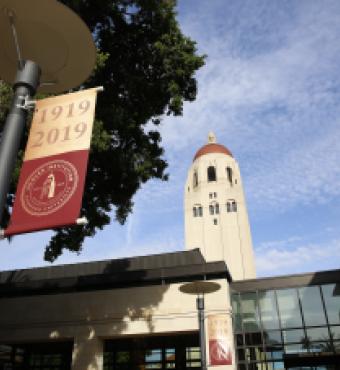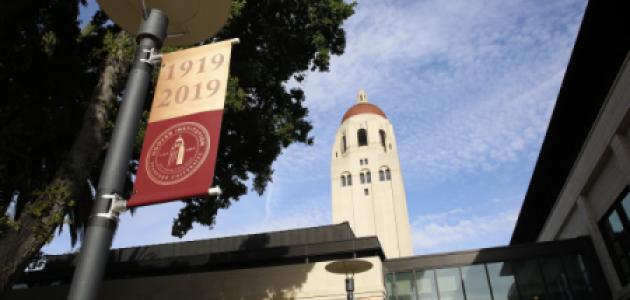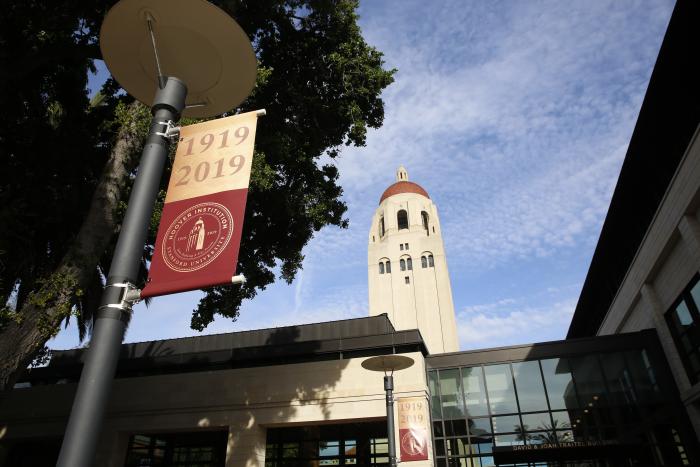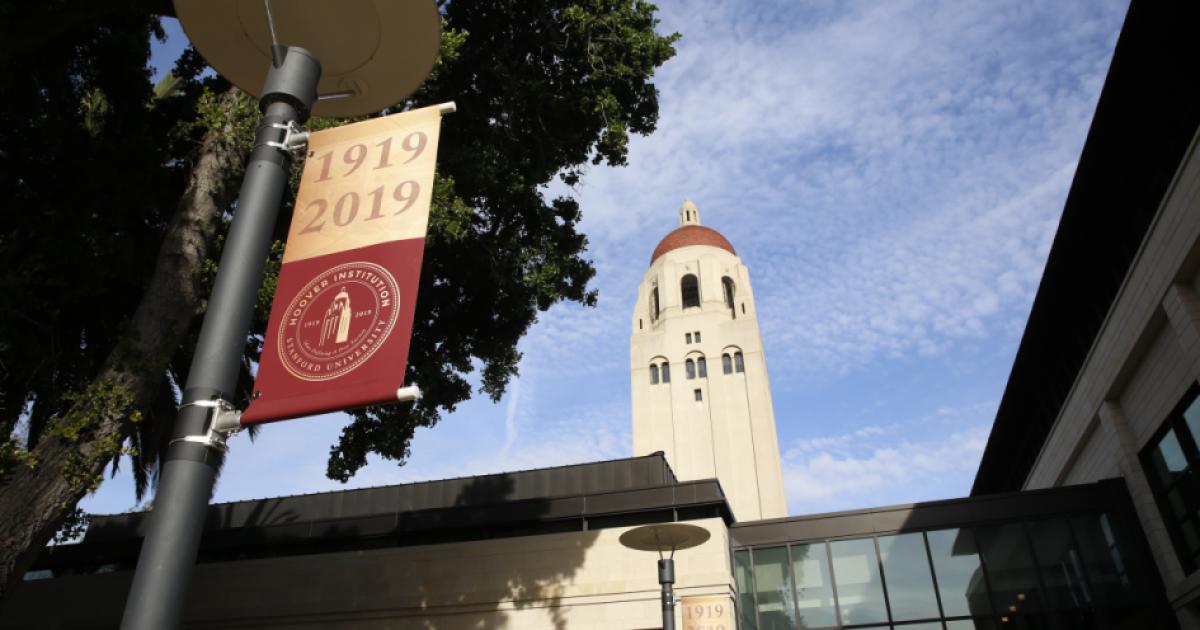The Hoover Institution’s 2019 Spring Retreat offered more than four hundred supporters one reminder after another about their essential role in sustaining the ideas that keep our free society flourishing. Hoover fellows and an important guest speaker reminded the group that freedom is resilient—yet under constant pressure.
No better evidence for that tension was given than in the retreat’s first talk by guest speaker Andrew McCarthy of National Review magazine and the National Review Institute. A former high-ranking federal prosecutor, McCarthy explained the significance of the legal probes of the 2016 election. This was timely, coming just days before the release of the Mueller Report.
“IT AFFECTS EVERYTHING”
McCarthy carefully explained the functions of the various agencies tasked with investigating national security and how they complement each other in protecting the nation while preserving the rights of citizens and a free political process. The apparent targeting of the Trump campaign and administration represents an alarming breakdown of this structure, McCarthy said.
“It is unfortunately necessary,” he began, “to speak of government spying in the context of the 2016 elections. This is the first time we must talk about spying in presidential elections since the 1970s.”
The good news, according to McCarthy, is that the system is righting itself. But he described it as a cautionary tale. American stability has been threatened. And when American stability is in doubt in a turbulent world, he told the dinner audience, “it affects everything.”
NEW WAYS ECONOMIC FREEDOM IS ASSERTING ITSELF
The adaptable resilience of free markets was the bottom line of a Monday morning talk by Hoover senior fellow Darrell Duffie, a leading economist and professor of finance at Stanford University’s Graduate School of Business. He addressed the safeguards put in place following the 2008 financial crisis. The most important, he said, were sophisticated analytic tools and transparency measures—implemented with the involvement of Hoover scholars—that allow markets to better identify risky financial institutions. This adjustment, said Duffie, minimizes overall vulnerability and helps stabilize the economy.
Soon afterward, John and Jean De Nault Senior Fellow Terry Anderson took the stage to discuss his recent research on economic life on Native American reservations, which he described as both “islands of poverty in an ocean of wealth” and a “laboratory” demonstrating the failure of socialism. As part of a collaborative project called the Alliance for Renewing Indigenous Economies, Anderson is helping to reveal the harms native peoples experience as the result of lack of access to market institutions, as well as how the US government can increase Native American well-being by lifting socialist economic policies and replacing them with ones emphasizing markets and property rights.
“MEDICARE FOR ALL” EQUALS CARE FOR FEW
One of the most illuminating talks came from David and Joan Traitel Senior Fellow Scott Atlas, MD, as he presented a series of graphics to drive home his argument against “Medicare for All” proposals introduced into Congress. Atlas presented data showing the superiority of the American health care system.
Hoover supporters have helped Atlas put these findings before the White House, Congress, federal commissions, state governments, and millions of Americans through his books and articles. This outreach will become even more important as the health care debate heats up in the run-up to the 2020 elections.
IS DEMOCRACY SUFFERING A GLOBAL RECESSION?
One of the foreign policy highlights of the retreat came when Hoover director Tom Gilligan interviewed Condoleezza Rice, the Thomas and Barbara Stephenson Senior Fellow at Hoover and former US secretary of state. The friendly conversation entered serious territory when Gilligan raised growing fears among scholars of a “global recession” of democracy, resulting from the rise of authoritarian regimes in places such as China, Russia, North Korea, Iran, Turkey, Venezuela, and others.
Rice pushed back against the notion. It is, she said, a trend to be “concerned” over, but it must be viewed as part of a bigger picture. In the euphoria after the Cold War, she said, the West assumed that millennia of top-down control would evaporate like mist. In reality, the end of the Cold War was a dramatic leap toward freedom rarely seen in world history. Therefore, we should not be surprised to see, three decades later, a modest reversion on a long road toward greater democratization.
Secretary Rice did not, however, see this reversion as a major historic trend. Things today are “still better than in 1988,” she said. In fact, she pointed out the very real perils threatening the long-term success of authoritarian regimes in Russia and China.
Russia, Rice explained, is “receding as an economic power.” On the other hand, China is rising. “But,” she asked, “is this a long-term linear rise? There are reasons [for] doubt.” She explained that the Chinese government is afraid of its own people; that authoritarian regimes usually trip themselves up by “efficiently” doing the wrong things, such as enacting a one-child policy that ultimately causes a demographic crisis. She believes China’s economy has limits that may not be far off and underlying problems that may soon rise to the surface.
THE TRUMP REPORT CARD
Another question that arose during the retreat is how President Trump has fared with respect to foreign policy. Michael Auslin, the Payson J. Treat Fellow in Contemporary Asia at Hoover, outlined the three areas of policy in Asia where the Trump administration will be “graded” by history.
The first area, according to Auslin, asks, How successful has President Trump been in addressing the threat posed by North Korea? With past policy makers having failed to check North Korea’s nuclear program and foreign aggression, Trump decided to pursue a new strategy, involving an accelerated series of face-to-face negotiations. But only time will reveal whether this new strategy will succeed where other more conventional approaches have failed.
Area two is competition in the South China Sea and its environs. Measured in value, seventy percent of global trade crosses through the South China Sea, and China is aggressively laying claim to it. Today the Trump administration is more forcefully resisting Chinese encroachment than previous administrations.
Auslin further explained that area three is China itself. Trade talks, the imposition of punitive tariffs, cyberespionage, military threats, and our responses all factor heavily in the Trump administration’s legacy and the world’s future. One thing, said Auslin, is sure: There is no going back. We are in a new era.
On that note, Martin and Illie Anderson Senior Fellow Victor Davis Hanson closed the retreat by examining the question, Is there a Trump Doctrine?
In foreign policy, he believes a “Trump Doctrine” was articulated by the work and outlook of Fouad and Michelle Ajami Senior Fellow H. R. McMaster, the administration’s former national security adviser, who has championed a strong America focused on safeguarding our principles and priorities. Hanson views the Trump administration’s approach as “strategic clarity and principled realism [that is] skeptical of multilateral partnerships and questionable regimes.”
In domestic policy, Hanson described Trump as holding to the generally conservative notion of realism over utopia, guided by American principles of ordered liberty.
Other speakers reinforced the same theme, whether speaking of new drone warfare strategies that will change the game of conflict or the need to renew American civic education: freedom faces relentless challenges, but capably shepherded, consistently proves to be tough and resilient.
Now, more than ever, the Hoover Institution’s supporters are squarely in the middle of this struggle.







